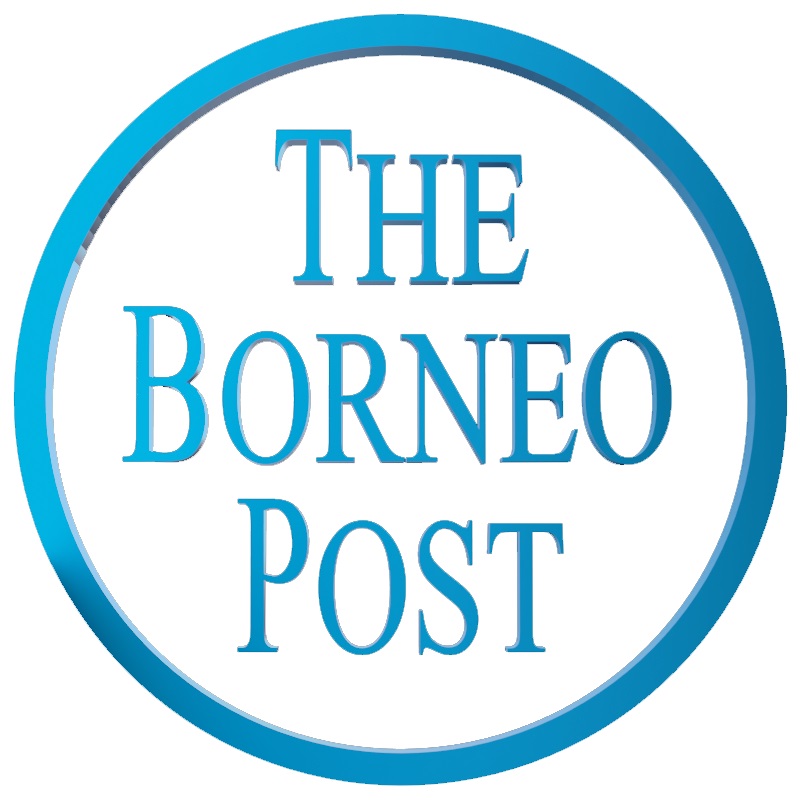Is a utopian Sarawak possible?
21 hours ago
 I RECALL that last day of August in 1963, when I was 13 and had just spent my first eight months in secondary school at St Thomas’ in Kuching.
I RECALL that last day of August in 1963, when I was 13 and had just spent my first eight months in secondary school at St Thomas’ in Kuching.
The feeling was palpable and I was filled with a young school boy’s naive excitement, that my beloved country was about to enter a brand new era to become a part of the bigger federation called Malaysia.
However it was only 16 days later in September that year that Sarawak would officially become a part of Malaysia.
At that time, our first prime minister Tunku Abdul Rahman had said in his speech: “We can feel proud indeed of the way we have created Malaysia through friendly argument and compromise.
“The spirit of co-operation and concord is living proof of the desire we share for a common destiny.
“Let us always remember that the Malayan nation was formed after many difficulties during a long period of national Emergency, yet its multi-racial society emerged, endured and survived as a successful and progressive nation, a true democracy and an example to the world of harmony and tolerance.”
He concluded by saying: “As it was with Malaya, so it can be with Malaysia. With trust in the Almighty God, unity of purpose and faith in ourselves, we can make Malaysia a land of prosperity and peace.”
Let us now fast forward to 62 years later.
What has Sarawak achieved by being part of a greater Malaysia?
Have we achieved a state of utopia?
First, let’s see what the Webster Dictionary says about the word ‘utopia’:
In many cultures, societies and religions, there is some myth or memory of a distant past when humankind lived in a primitive and simple state, but at the same time, one of perfect happiness and fulfilment.
People’s needs were few and their desires limited. Both were easily satisfied by the abundance provided by nature.
But it has evolved through the ages and today, the utopian world that so many of us imagine, envisage or long for, can no longer be attained in any way, manner or form.
We can argue and debate and put forward our thoughts and proposals as to the many ‘what ifs?’ that has been the subject of so much discussion among citizens, netizens and politicians of all persuasion: “What if we had never joined or helped form Malaysia? Could we have prospered even more?
“Could we have developed to become a First World nation by now?”
On looking back, and as I sat in my classroom 62 years ago filled with hope, expectations and dreams of a bright and shining future, I can safely say today that in my own personal opinion, Sarawak has made good progress and we, as its citizens, have done rather nicely.
But yet there are so many unfulfilled possibilities, opportunities and directions that we could have taken to ensure that everything could have been so much better towards building an even more equitable, prosperous, harmonious and righteous nation.
But it’s never too late.
We all have different needs and myriad personal desires; we come from backgrounds as diverse as whose parents and forefathers had either toiled in the fields, worked in government offices, laboured in shops, or those who had servants at their beck and call.
For each and every one, our concept and wishes for a utopian state of government would be very different, although at the core of it we have in common our personal desires for fairness, equality, justice, truth, as well as intolerance and abhorrence for corruption, untruthfulness, ingratitude and entitlement.
What have we, as Sarawakians, been faced with thus far, these 62 years since gaining independence from the British?
What have we gained, and what have we lost?
We have had strong state governments and political stability amidst some volatility in federal politics and frequent changes of power bases among our neighbouring countries.
Our state government has always depended on being an alliance of multiple parties, and have been basically multiracial in composition.
We have our freedom of worship, freedom from hunger and poverty, and a reasonably fair amount of freedom of speech, and very minimal control over personal liberties like the right to gather, assemble, or rally.
In general, our laws are fair and our judiciary, independent.
Our elections are free and open, our businesses operate without undue restrictions and neither are they burdened with excessive controls, taxes or discrimination.
What then are some of the shortcomings, the cons, and the negatives?
There is a general perception of the lack of transparency and unfairness in many fields of endeavour – among which would be the recruitment of staff for the civil service, which has seen a monopoly of one single race.
In the selection for academic scholarships, in the guided allocation of low-cost housing and other ‘special-benefit schemes’, the propensity of the authorities awarding such benefits also heavily inclined towards one race has been faulted by many – with the recent promise of free higher education for all, and a more open selection, it is hoped that this will change.
In many other fields, from the perceived ‘gerrymandering’ of state and federal constituencies for the seats in the state and federal assembly, to the awarding of public tenders for major works projects to either cronies or those close to the corridors of power; these are also often highlighted.
Yes, there are a great many what I’d rather term as ‘grey areas’ whereby many of us have had to compromise to ensure that the greater society can continue to live in peace, harmony and maintain equal chance and opportunity for all.
In a plural society like ours, where there’s no one majority race.
As per 2021, the racial statistics showed the Iban percentage at 29 per cent, Chinese at 23 per cent, Malay at 23 per cent, Bidayuh at eight per cent, Orang Ulu six per cent, Melanau at five per cent, non-Malaysians at five per cent, and others at less than one per cent.
There is a necessity to ensure that each race is cognisant to another’s sensitivities.
Therefore, an example would be the need to also ensure religious and societal norms too are observed where and whenever possible.
In every society, there will always be a hardcore group of citizens who would always be highly critical of whatever the government of the day does in its policies, plans and vision.
As a state, Sarawak had gone through a rather rough patch during its earlier years, what I’d call the ‘teething problem’ years, from 1963 till the late 1970s.
Not until 1981, when the fourth chief minister (and the longest-serving, for 33 years) had taken over was there some sense of stability, and some would add, a more didactic approach.
Those years when the government of the day had followed what was termed as the ‘politics of development’, it did indeed witness vast amounts spent on basic infrastructures to connect, improve and enhance the people’s lives in general.
Today, with the premiership of Datuk Patinggi Tan Sri Abang Johari Tun Openg, being at the helm for the past eight years, we have seen an immense amount of state funds being spent, and still more being planned, for the well-being of all Sarawakians in both the rural and urban areas.
The future is infinitely rosy and secure, and with a minimal amount of unnecessary politicking as well as the leadership of a strong, stable and able state government under the benevolent and far-sighted leadership of such a dedicated, selfless and hardworking team from the major races, we are assured that the future of Sarawak will be well taken care of.
‘Maju Sarawak’! May God save and bless Sarawak!
* The opinions expressed in this article are the columnist’s own and do not reflect the view of the newspaper.
...Read the fullstory
It's better on the More. News app
✅ It’s fast
✅ It’s easy to use
✅ It’s free








